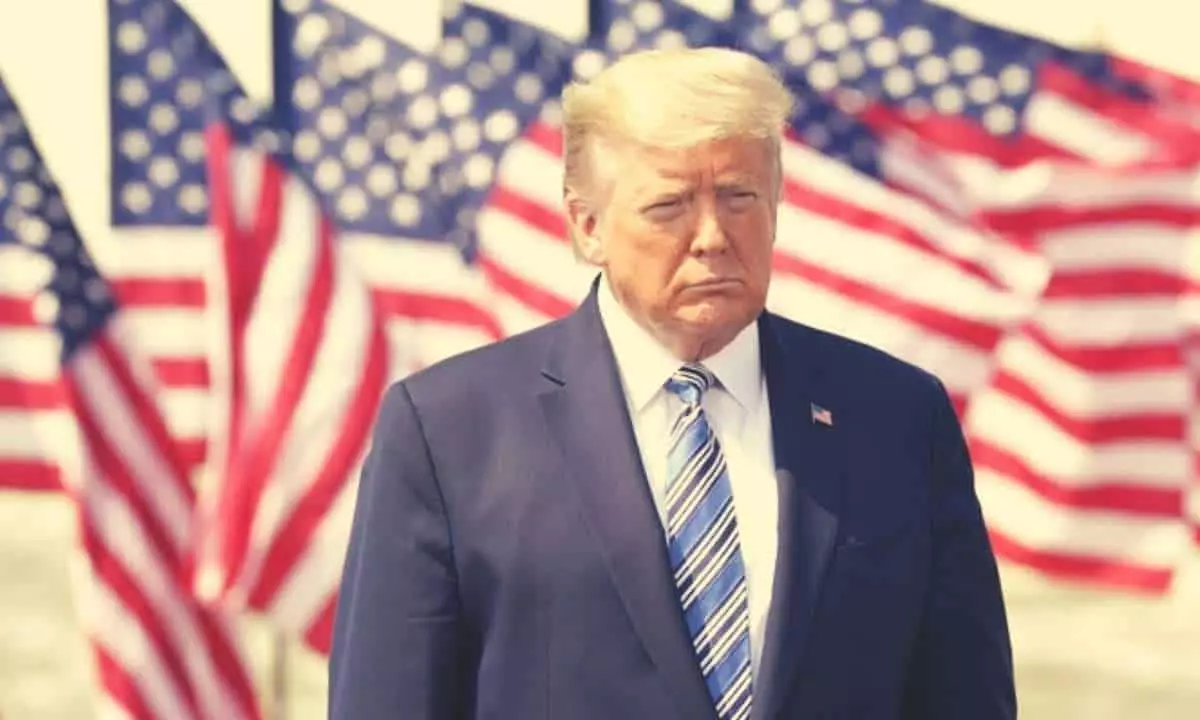In a remarkable demonstration of political will, former President Donald Trump recently signed into law a resolution that dismantles the IRS’s controversial “DeFi Broker Rule.” This watershed moment, orchestrated by Ohio’s Representative Mike Carey and backed by Texas Senator Ted Cruz, signifies much more than a mere regulatory reshuffling; it embodies a fierce commitment to preserving innovation in the decentralized finance (DeFi) sector. By invoking the Congressional Review Act (CRA), this resolution does not just repeal the rule; it erects a legal barrier that keeps similar oppressive regulations at bay without newly enacted legislation. The passage of this law is a clarion call for those who champion the undeterred evolution of cryptocurrency.
Understanding the DeFi Landscape
The IRS’s ill-fated rule sought to extend a broadened definition of “broker” to encompass developers of self-custodial wallets and other DeFi applications—entities that allow users to manage their digital assets without traditional intermediaries. The intention was to impose stricter tax reporting requirements on these platforms, aiming to minimize perceived gaps in the tax collection framework as cryptocurrency adoption rises. However, this attempt to regulate the unregulatable showed a fundamental misunderstanding of how decentralized platforms function. In a world where personal data is increasingly vulnerable, expecting these platforms to comply with IRS reporting standards was fraught with challenges. DeFi platforms thrive on privacy and user autonomy, and the IRS’s heavy-handed approach threatened the very foundation of what makes them attractive to users.
A Struggle Against Overreach
Critics of the DeFi Broker Rule rightly voiced concerns that it lacked a coherent understanding of decentralized operations. Such regulations could have led to a mass exodus of talent, as developers might have sought refuge in countries with a more favorable regulatory climate. It was alarming to consider that the U.S., once the beacon for technological innovation, could stifle progress through misguided policies that misunderstood the very nature of cryptocurrency.
Supporters of the rule—including certain Democratic lawmakers—argued that robust reporting mechanisms would diminish the potential for high-income crypto investors to exploit loopholes and evade taxes. Nonetheless, such arguments often overlook the realities of the DeFi ecosystem. The more accurate assessment points toward a need for balanced legislation that protects users while still capturing tax revenue—a nuanced middle ground that the previous administration’s policies, lacking clear understanding, failed to broker.
The Free Market Narrative
Representative Carey’s reassessment of the repeal marked it not merely as a victory for crypto proponents, but as a defense of personal privacy rights. In his remarks, he positioned the repeal as a measure to liberate innovation from bureaucratic overreach. The Trump administration’s backing of this legislation reinforces its broader pro-crypto agenda, showcasing a renewed commitment to allowing market forces to dictate the trajectory of digital finance rather than a bevy of regulations stifling its growth.
The swift movement of this resolution through Congress signals a palpable shift toward embracing crypto within the Republican-controlled legislature. It is heartening to witness a Republican administration taking definitive steps to allow the free market to flourish in the sphere of blockchain technology. With Trump’s emphasis on creating a federal task force for cryptocurrencies, we are entering an era where legislation is more aligned with technological advancement, moving away from the cautionary stances of previous administrations that invoked regulatory fear.
Charting a New Course
Even more promising for the crypto community is the shift in the Securities and Exchange Commission’s (SEC) posture towards industry engagement. The previous administration’s aggressive tactics—characterized by investigations and lawsuits against various crypto enterprises—have been rolled back, paving the way for collaboration rather than confrontation. This change is not merely a footnote in the crypto timeline; it’s a potential turning point that embraces a global leadership position for the United States within an ever-evolving landscape of technology.
By actively dismantling the DeFi Broker Rule and fostering a more permissive regulatory environment, Congress opens the door to unparalleled opportunities for entrepreneurs and innovators. This should galvanize entrepreneurs and potential investors who have long awaited a more nurturing climate for technological development. In a world where digital currency is increasingly intertwined with everyday commerce, it’s paramount to adapt regulations that recognize and respect the distinctiveness of decentralized platforms. The DeFi community is resilient, but continued support and understanding from lawmakers will be vital for harnessing its full potential.


Leave a Reply